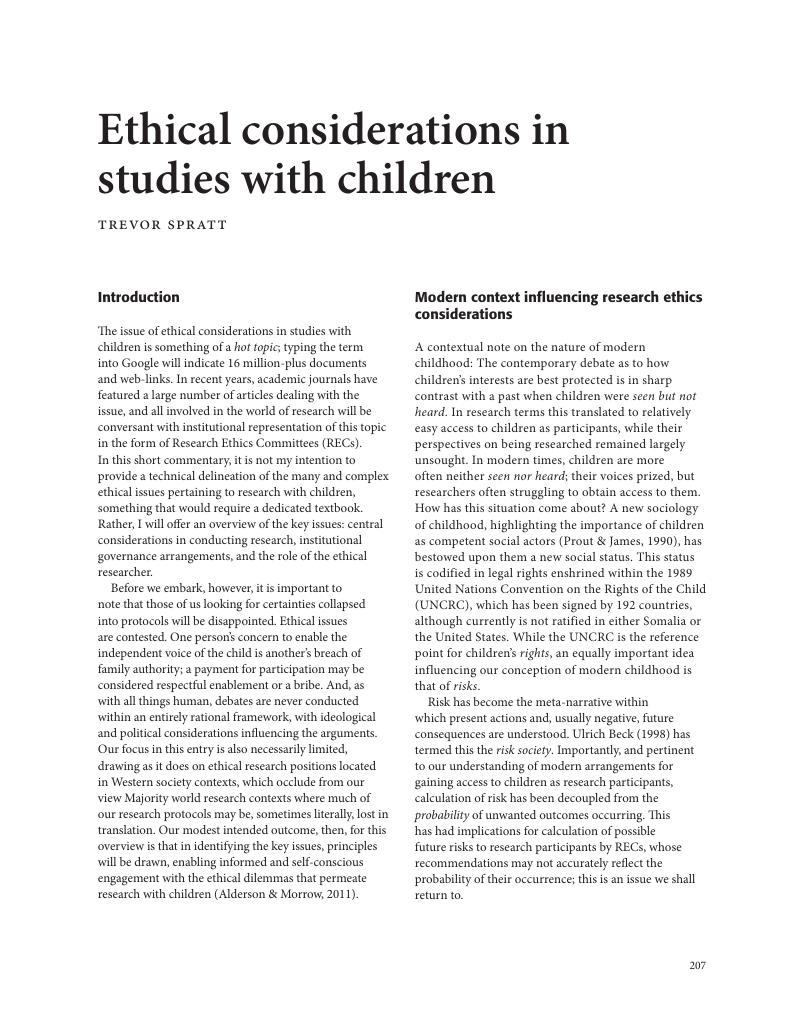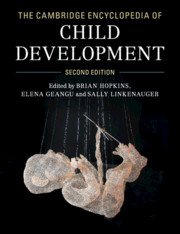Book contents
- The Cambridge Encyclopedia of Child Development
- Child Development
- Copyright page
- Dedication
- Contents
- Contributors
- Editorial preface
- Foreword
- Acknowledgments: External Reviewers
- Introduction Study of child development: an interdisciplinary enterprise
- Part I Theories of development
- Part II Methods in child development research
- Biomechanics
- Cross-cultural comparisons
- Cross-species comparisons
- Developmental testing
- Experimental methods
- Eye tracking
- Fetal and neonatal magnetoencephalography
- Fetal ultrasonography
- Head-mounted eye tracking
- Interviewing children for research
- Magnetic resonance imaging (MRI)
- Functional near-infrared spectroscopy
- Direct observational methods
- Parent and teacher rating scales
- Qualitative methods
- Self-reports and peer ratings
- Epidemiological designs
- Longitudinal and cross-sectional designs
- Twin and related designs
- Bayesian data analysis
- Connectionist modeling
- Individual and group differences in developmental functions
- Indicators of accuracy for screening tests
- Multilevel modeling
- Structural equation modeling
- Time-series analysis
- Ethical considerations in studies with children
- Part III Prenatal development and the newborn
- Part IV Perceptual and cognitive development
- Part V Language and communication development
- Part VI Social and emotional development
- Part VII Motor and related development
- Part VIII Postnatal brain development
- Part IX Developmental pathology
- Part X Crossing the borders
- Part XI Speculations about future directions
- Book part
- Author Index
- Subject Index
- Plate Section (PDF Only)
- References
Ethical considerations in studies with children
from Part II - Methods in child development research
Published online by Cambridge University Press: 26 October 2017
- The Cambridge Encyclopedia of Child Development
- Child Development
- Copyright page
- Dedication
- Contents
- Contributors
- Editorial preface
- Foreword
- Acknowledgments: External Reviewers
- Introduction Study of child development: an interdisciplinary enterprise
- Part I Theories of development
- Part II Methods in child development research
- Biomechanics
- Cross-cultural comparisons
- Cross-species comparisons
- Developmental testing
- Experimental methods
- Eye tracking
- Fetal and neonatal magnetoencephalography
- Fetal ultrasonography
- Head-mounted eye tracking
- Interviewing children for research
- Magnetic resonance imaging (MRI)
- Functional near-infrared spectroscopy
- Direct observational methods
- Parent and teacher rating scales
- Qualitative methods
- Self-reports and peer ratings
- Epidemiological designs
- Longitudinal and cross-sectional designs
- Twin and related designs
- Bayesian data analysis
- Connectionist modeling
- Individual and group differences in developmental functions
- Indicators of accuracy for screening tests
- Multilevel modeling
- Structural equation modeling
- Time-series analysis
- Ethical considerations in studies with children
- Part III Prenatal development and the newborn
- Part IV Perceptual and cognitive development
- Part V Language and communication development
- Part VI Social and emotional development
- Part VII Motor and related development
- Part VIII Postnatal brain development
- Part IX Developmental pathology
- Part X Crossing the borders
- Part XI Speculations about future directions
- Book part
- Author Index
- Subject Index
- Plate Section (PDF Only)
- References
Summary

- Type
- Chapter
- Information
- The Cambridge Encyclopedia of Child Development , pp. 207 - 210Publisher: Cambridge University PressPrint publication year: 2017
References
Further reading
References
- 1
- Cited by



